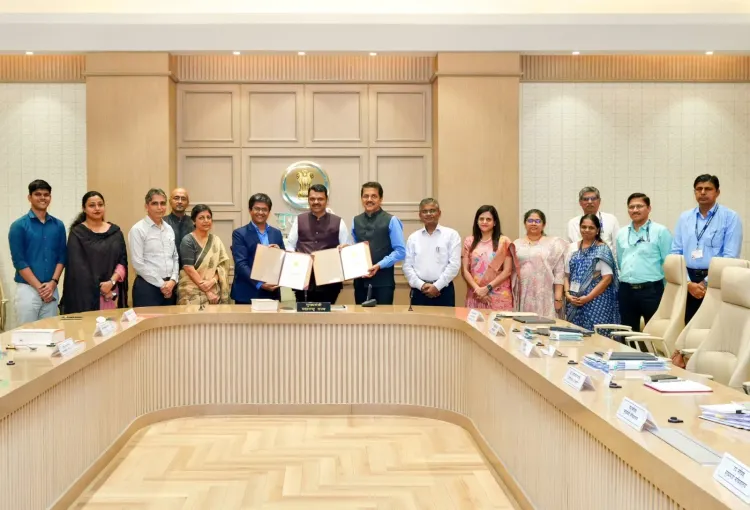How is the Maharashtra government partnering with CEGIS to enhance social governance?

Synopsis
Key Takeaways
- Five-year MoU signed between Maharashtra government and CEGIS.
- Focus on data-driven governance and policy execution.
- Development of a Decision Support System for effective decision-making.
- Initiative aims to enhance transparency and accountability.
- Collaboration to improve citizen feedback and monitoring.
Mumbai, June 23 (NationPress) On Monday, a five-year memorandum of understanding (MoU) was established between the Maharashtra government, the Chief Minister’s Office (CMO), and CEGIS (Centre for Effective Governance of Indian States) to fortify data-driven governance and policy execution throughout the state.
This agreement was finalized during a meeting led by Chief Minister Devendra Fadnavis focused on strengthening the 'CMO Social Sector War Room'. The signing event saw the presence of CEGIS Chief Executive Officer Dr. Vijay Pingle and various senior officials.
“This collaboration will empower enhanced governance frameworks, data-driven decision-making, and provide technical and policy assistance to the state government, leading to more effective choices and implementations across departments,” the Chief Minister’s Office stated in a post on X.
“The MoU aims to deliver technical, analytical, and strategic support for the successful execution of schemes, initiatives, and measures in the social sector. A ‘Decision Support System’ (DSS) will be created for the Chief Minister’s Office to foster data-driven decision-making. This system will integrate with the War Room mechanism, allowing for the measurement of scheme progress relative to both national and international standards. These systems will assist in minimizing discrepancies in information and improving the quality of citizen feedback through effective monitoring,” the Chief Minister’s Office elaborated.
CM Fadnavis remarked that a tracking system for the implementation of social schemes would be extremely advantageous. “The MoU will enhance strategic capacity and improve transparency and accountability in service delivery,” he added.









